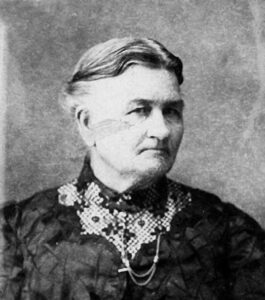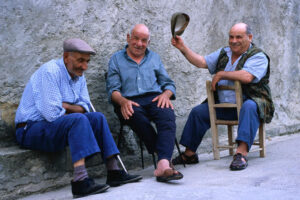By Suzanne Sparrow Watson
 This week marks a milestone birthday for my husband – 80! He’s in pretty good shape – still able to play golf, walk the dog and shout at the TV while watching hockey. I’ve been thinking about his birthday a lot this month, mostly because he is impossible to shop for since he has very particular taste and, let’s face it, at 80 years old he already has everything he needs. The other reason I’ve been thinking about his big day is I marvel at the longevity of his family. As many of our subscribers know, my husband, his parents and his older brother we interned in a Japanese prisoner of war camp for about four years during WWII. Suffice it to say that food and medical care were in short supply. Yet his father lived to 90, his mother to 96 and his brother is still going strong. You would think that their experience would shorten their lives, but obviously they have some tough genes in the Watson tribe.
This week marks a milestone birthday for my husband – 80! He’s in pretty good shape – still able to play golf, walk the dog and shout at the TV while watching hockey. I’ve been thinking about his birthday a lot this month, mostly because he is impossible to shop for since he has very particular taste and, let’s face it, at 80 years old he already has everything he needs. The other reason I’ve been thinking about his big day is I marvel at the longevity of his family. As many of our subscribers know, my husband, his parents and his older brother we interned in a Japanese prisoner of war camp for about four years during WWII. Suffice it to say that food and medical care were in short supply. Yet his father lived to 90, his mother to 96 and his brother is still going strong. You would think that their experience would shorten their lives, but obviously they have some tough genes in the Watson tribe.
My side of the family has also lived long lives. In fact, when I researched our genealogy I discovered that the women on our mother’s side of the ledger have lived way beyond the average lifespan of their time for hundreds of years. The furthest back I can go is 13th century England, when our 20th great-grandmother, Sybella deLea, lived to be 65! Our dad’s side isn’t so fortunate but even he lived to be 87 and the only gym he ever came into contact with was Jim Beam, so his long life definitely wasn’t attributable to healthy lifestyle habits. So I got to wondering…why do some people live longer? The answer wasn’t as straightforward as I’d expected. First, it’s good to know that after a small decline in the mid 2010’s, the average lifespan in the U.S. increased over the past couple of years and is now 78.93. Eighty years ago the average was 62.81 which, among other things, is why our Social Security system is on the brink of bankruptcy – we’re all living a lot longer. The increase can be attributed to a number of factors – vaccinations and antibiotics greatly reduced deaths in childhood, workplace safeguards improved work-related injuries and illness, and finally, smoking went out of fashion, almost to the point of extinction today.
But since those improvements tended to benefit industrialized populations equally, why are some people and indeed, whole families, living longer than others? Researchers estimate that about 25% of the variation in lifespan is due to genetics, but which genes, and how they contribute to longevity, is not well understood. Most of our ability to live to an old age is due to lifestyle habits – a healthy weight, a good diet and none of the vices (cigarettes, alcohol and drugs). So, in other words, you may live to a ripe old age but be prepared to be bored as hell. Scientists are studying a handful of communities in parts of the world where people often live into their nineties and older—Okinawa (Japan), Ikaria (Greece), and Sardinia (Italy). These three regions are similar in that they are relatively isolated from the broader population in their countries, are lower income, have little industrialization, and tend to follow a traditional (non-Western) lifestyle. Unlike other populations of the very old, the centenarians on Sardinia include a significant proportion of men. Researchers are studying whether hormones, sex-specific genes, or other factors may contribute to longer lives among men on the island. I’m thinking it has more to do with limited exposure to the internet but that’s just my theory.
In a study published by the NIH, scientists in the United States noted that long-lived individuals have little in common with one another in education, income, or profession. What they do share are common healthy lifestyle habits. Jeez – there is just no getting away from people advising us to diet and exercise. But here is the great part for those of us who had long-lived ancestors: these same scientists concluded that if you get to be age 70 without major health issues, and you have a family history of longevity, you are likely to live a very long life. What I’m taking away from this research is if you get to 80 you can begin to smoke, drink and loaf because you’ve already outlived the averages and deserve that big piece of chocolate cake. So…happy big birthday to my husband – the odds are he’s going to be around for many more years!


